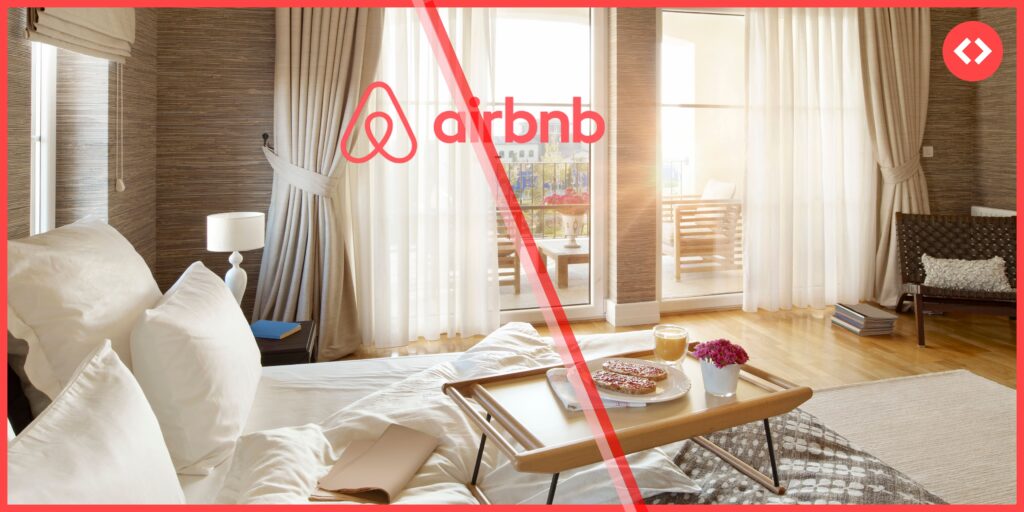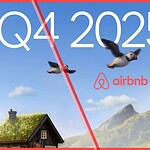Airbnb has been talking up new services, experiences, and hotels — but there’s a quieter, more strategic growth lever hiding in plain sight: licensed bed-and-breakfasts and boutique inns. These independent, locally rooted properties could help Airbnb grow supply, attract a wider guest base, and challenge Booking.com in one of its strongest segments.
Airbnb for Innkeepers: A Strategic, Underused Opportunity
For licensed bed-and-breakfast owners and innkeepers, Airbnb remains an underutilized sales channel. Booking.com has long been their default distribution partner, but at a high cost — commissions often range from 15–17%. Airbnb’s leadership has hinted it can be “very competitive” on fees, which could make the platform a welcome alternative for operators seeking more control over margins. Lower hosting costs could even allow price flexibility to attract guests without eroding profitability.
From a brand perspective, the fit is obvious. B&Bs are about local hosts, authentic settings, and personal touches — exactly the image Airbnb has cultivated for years. In these stays, guests often meet the host in person, share stories over breakfast, and receive tailored recommendations for exploring the area. That direct human connection is an asset that aligns with Airbnb’s brand promise far more cleanly than a generic hotel chain room.
A Category That Blurs Into Airbnb’s Hotel Ambitions
When Airbnb says it’s “going significantly more aggressively into hotels,” it’s unlikely they mean chasing Hilton or Marriott. The real target is the long tail: independent hotels, boutique properties, inns, and large B&Bs. In practice, the boundaries between these categories are thin — a 12-room inn with a breakfast service might be marketed as a B&B locally, an “inn” regionally, and a “boutique hotel” to international guests.
This is a space Booking.com has mastered. Independent hotels and B&Bs make up a large part of its “alternative accommodations” inventory, which is a proven growth driver. By courting these operators, Airbnb can replicate Booking.com’s European playbook — in reverse — converting hotel and inn guests into home-rental customers.
Regulatory and Competitive Advantages
Licensed B&Bs already comply with local hospitality rules, making them a low-risk supply source in cities where short-term rental caps limit growth. This compliance also opens a strategic door: in some regions, STR hosts are adding breakfast services or reconfiguring to qualify as licensed B&Bs, allowing them to remain on the platform despite tighter regulations.
For independent operators, joining Airbnb can offer:
- Lower commissions than Booking.com’s standard rates.
- Access to Airbnb’s U.S. traveler base, which remains under-penetrated for Booking.com.
- A younger, experience-focused audience — valuable for long-term brand building.
However, analysts will note a visibility challenge. On Airbnb’s homepage, the main category is “Homes,” not “Stays,” and there’s no clear filter for B&Bs or boutique hotels. Even in recent ad campaigns, Airbnb positions hotels as less desirable than vacation rentals, suggesting an internal brand tension. If Airbnb wants this segment to grow, it must make these listings discoverable — not quietly tucked under “guesthouse” filters.
PMS Integration: The Missing Infrastructure
Airbnb has begun integrating with property management systems that serve small hotels and B&Bs, but this is still patchy. Booking.com’s deep PMS network gives it a scale advantage; for Airbnb to compete, it must accelerate integrations with innkeeper-friendly systems. Without that, onboarding licensed properties at scale will be slow and costly.
What Airbnb Must Do Next
To unlock this segment, Airbnb should:
- Make B&Bs, inns, and boutique hotels a visible category on the platform.
- Build a dedicated Airbnb for Innkeepers onboarding and education program.
- Expand PMS integrations to capture more supply with less friction.
- Align marketing and brand messaging so licensed B&Bs feel welcomed, not sidelined.
If executed well, this isn’t just a supply play — it’s a way for Airbnb to quietly reclaim ground in a category Booking.com has monetized heavily for years.
FAQ: Airbnb for Innkeepers and B&B Owners
Q: Should licensed bed-and-breakfast owners use Airbnb?
A: Yes — it can complement direct bookings and Booking.com. Airbnb can bring in guests you might not reach otherwise, including a younger, more global audience.
Q: How do Airbnb’s commissions compare to Booking.com’s?
A: : For most licensed bed and breakfasts, boutique hotels, and small inns, Airbnb’s commission structure is typically lower than Booking.com’s standard 15–17%+ partner commission rate.
Airbnb’s typical range: Many professional hospitality listings pay around 14–16% under the host-only fee model. In some markets, smaller B&Bs may still be on the split-fee model (3% host fee + guest service fee), which can reduce the host’s direct commission cost further — though guests see a separate service fee.
Booking.com’s fixed rate: Booking.com generally charges a flat 15–17% commission (sometimes higher in competitive urban markets or under “Preferred” programs, which bring the take rate at 25%) with no guest-facing service fee — meaning the entire commission is deducted from the host payout.
Q: How visible are B&Bs on Airbnb?
A: Currently, visibility is limited, as Airbnb categorizes most listings under “Homes.” This could change if Airbnb invests in clearer categories for licensed B&Bs and inns.
Q: Does Airbnb help with compliance for B&Bs?
A: Licensed B&Bs typically have fewer regulatory hurdles than unlicensed STRs. Airbnb can be a compliant channel in many cities where short-term rental caps apply.
Q: What tools or integrations are available for B&B owners?
A: Airbnb supports some PMSs used by small hotels and B&Bs, but its network is smaller than Booking.com’s. More integrations would make onboarding easier and faster for innkeepers.
Thibault Masson is a leading expert in vacation rental revenue management and dynamic pricing strategies. As Head of Product Marketing at PriceLabs and founder of Rental Scale-Up, Thibault empowers hosts and property managers with actionable insights and data-driven solutions. With over a decade managing luxury rentals in Bali and St. Barths, he is a sought-after industry speaker and prolific content creator, making complex topics simple for global audiences.








